AWS Cloud Practitioner CLF-C02
Technology Part Three
Secondary AWS Services IoT Services
Welcome back, Cloud Practitioners!
In this article, we explore two essential AWS IoT services featured in the CLF-C02 Cloud Practitioner exam: AWS IoT Core and AWS IoT Greengrass. Although AWS provides a variety of IoT services, these two are highlighted for their relevance to large-scale IoT deployments. Below, we break down the core functionalities, use cases, and benefits of each service.
AWS IoT Core
AWS IoT Core is designed for centralized device management, secure connectivity, and efficient message brokering. It is the backbone of many IoT solutions by maintaining device registries, tracking device states, and aggregating messages from connected devices. Supported communication protocols include MQTT, WebSockets, and HTTPS, with integration to X.509 certificates for enhanced security. This service is widely used for industrial automation, smart homes, connected vehicles, and similar scenarios requiring robust fleet management.
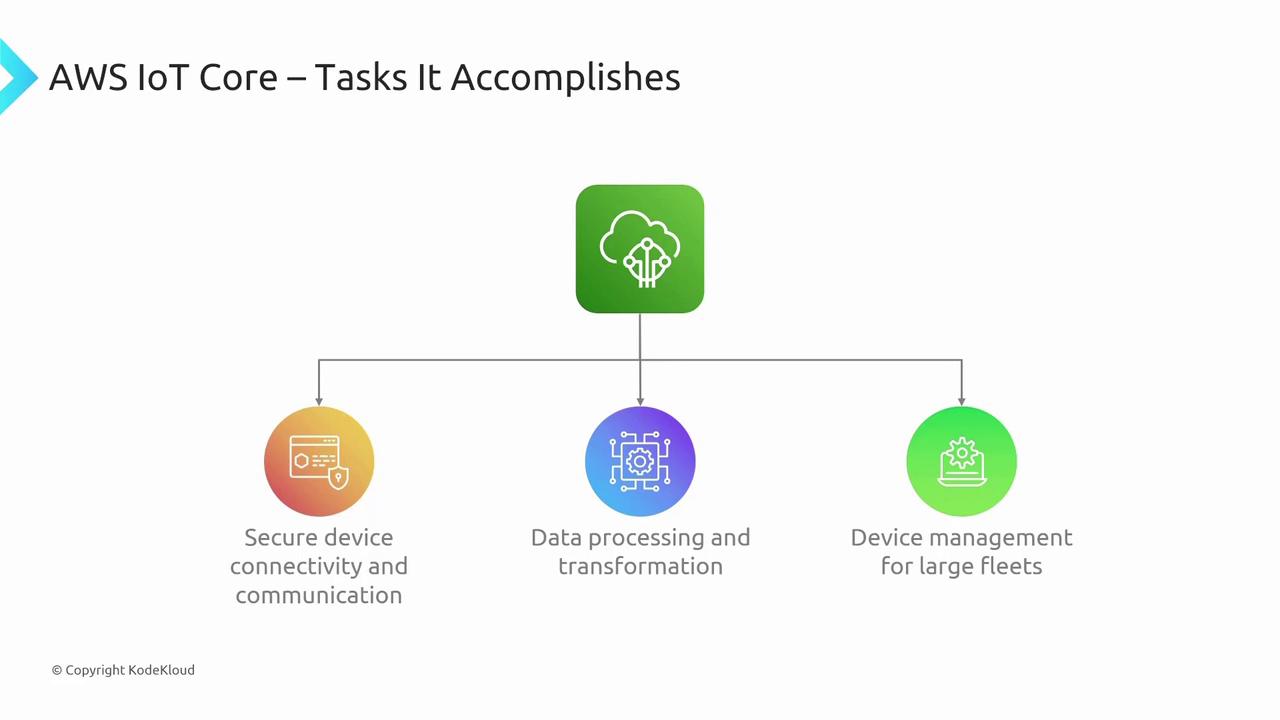
Key Features of AWS IoT Core:
- Secure device connectivity and robust fleet management.
- Maintenance of device registries and last known states.
- Acts as a message broker to collect and aggregate IoT data.
- Supports data processing, transformation, and rule-based engines.
- Seamless integration with other AWS services, offering scalable and cost-effective solutions.
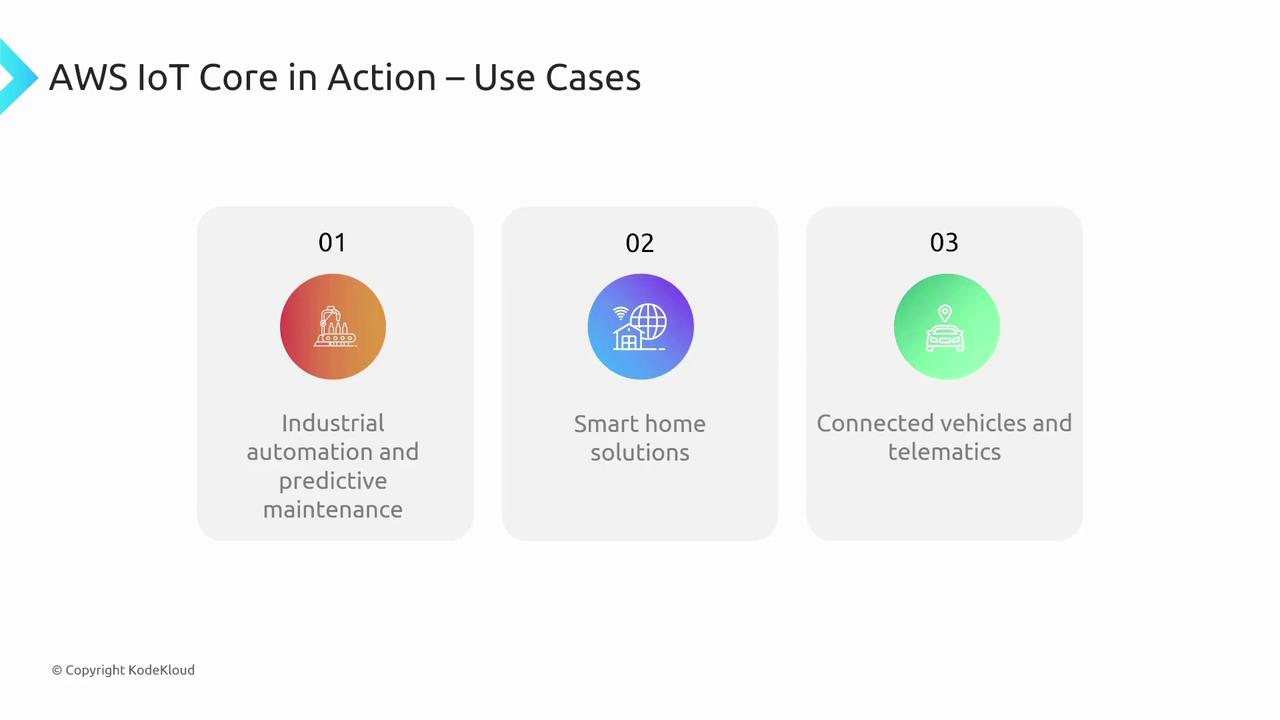
Note
AWS IoT Core is best suited for applications that leverage reliable and continuous Internet connectivity, as it centralizes device management and data analytics.
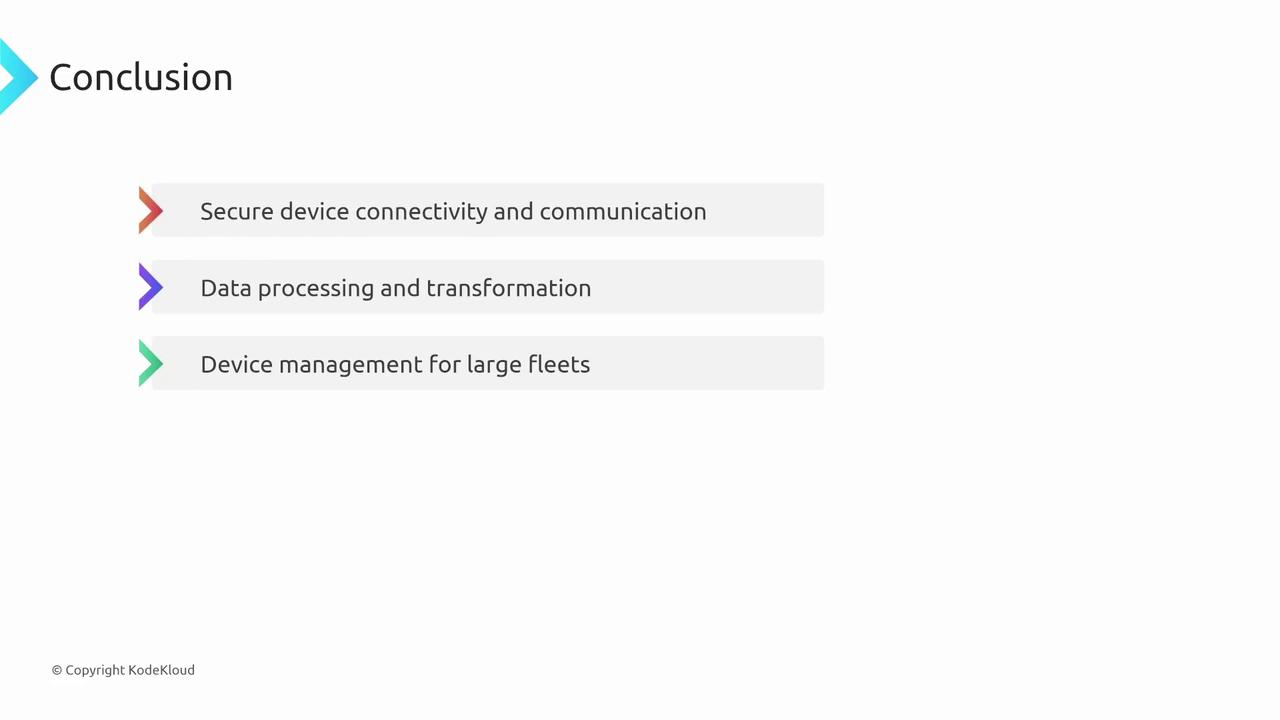
AWS IoT Greengrass
AWS IoT Greengrass extends computing capabilities beyond the cloud by enabling local processing, analysis, and device management. Unlike the centralized approach of IoT Core, Greengrass operates at the edge, allowing for containerized applications and on-site machine learning inference. This local processing is crucial for environments with intermittent or limited connectivity, including remote industrial sites, agricultural fields, and connected vehicles.
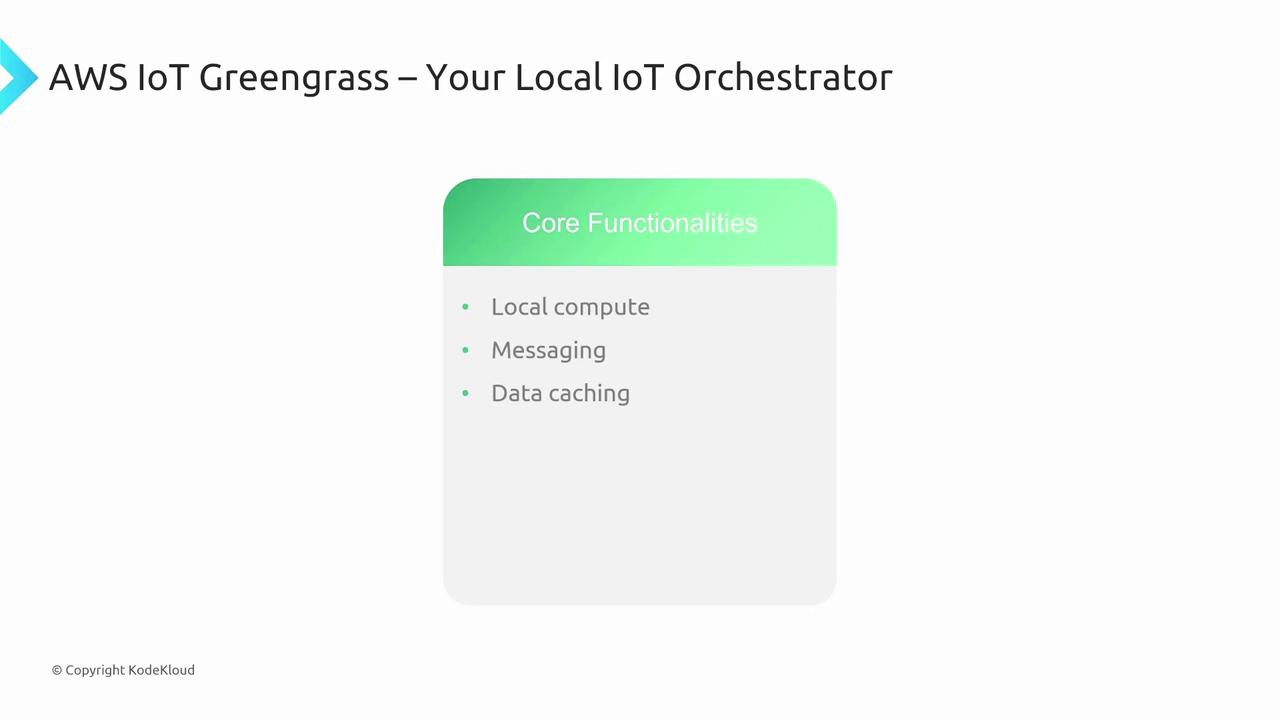
Main Capabilities of AWS IoT Greengrass:
- Executes local computing tasks, including containerized applications.
- Manages local messaging and supports data stream processing.
- Caches data to ensure continuity in environments with limited connectivity.
- Enables on-site machine learning inference to facilitate real-time decisions.
- Ensures secure device deployments and smooth integration with local hardware.
These features empower various real-world applications, such as industrial automation, smart agriculture, and healthcare, where fast, localized data processing is paramount.

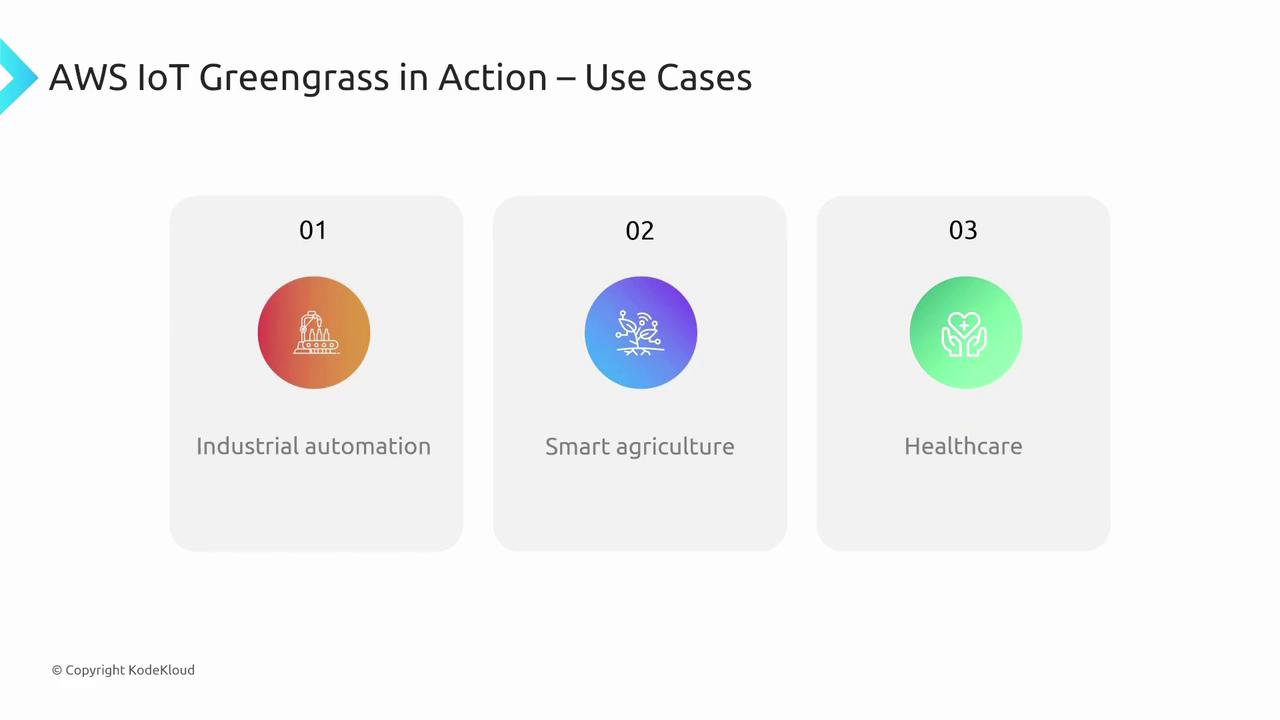
Important
In areas where reliable connectivity is a challenge, AWS IoT Greengrass significantly reduces latency by processing data locally, ensuring uninterrupted operations.
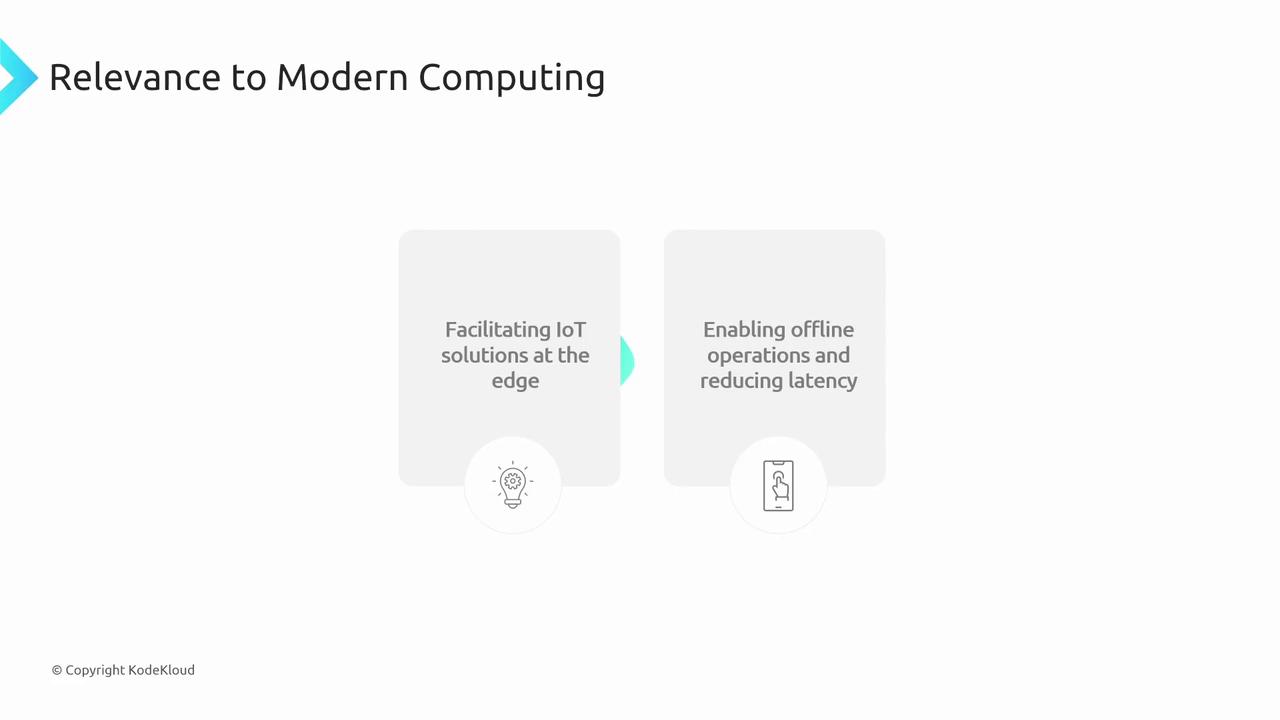
Summary
Both AWS IoT Core and AWS IoT Greengrass are integral components of comprehensive IoT solutions:
| Service | Key Functionality | Ideal Use Case |
|---|---|---|
| AWS IoT Core | Centralized device connectivity, message brokering, and data processing | Scenarios with robust, continuous Internet connectivity, such as industrial automation and smart homes. |
| AWS IoT Greengrass | Local data processing, containerized computing, and offline operations | Applications that require fast, local decision-making in environments with limited or intermittent Internet connectivity. |
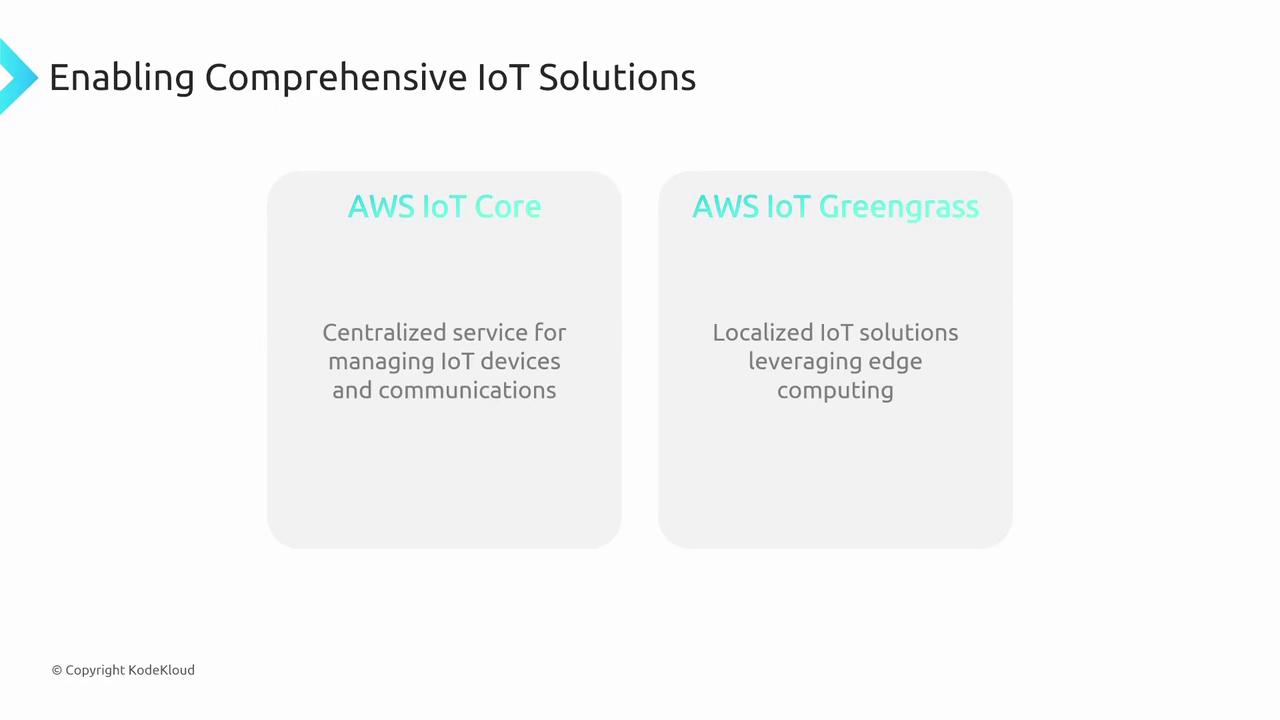
Both services are deeply integrated within the AWS ecosystem, providing strong security measures and scalability. While IoT Core excels in managing large fleets of connected devices in well-connected environments, IoT Greengrass is optimized for edge computing where local processing is critical.
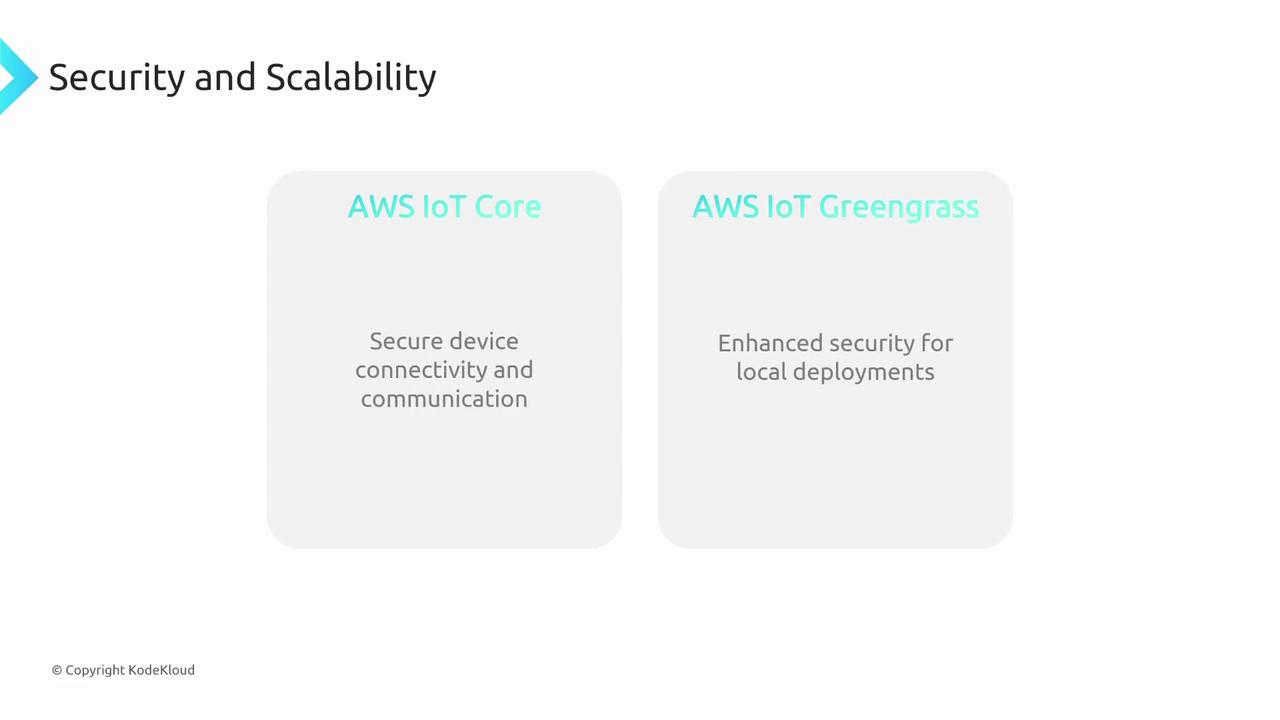
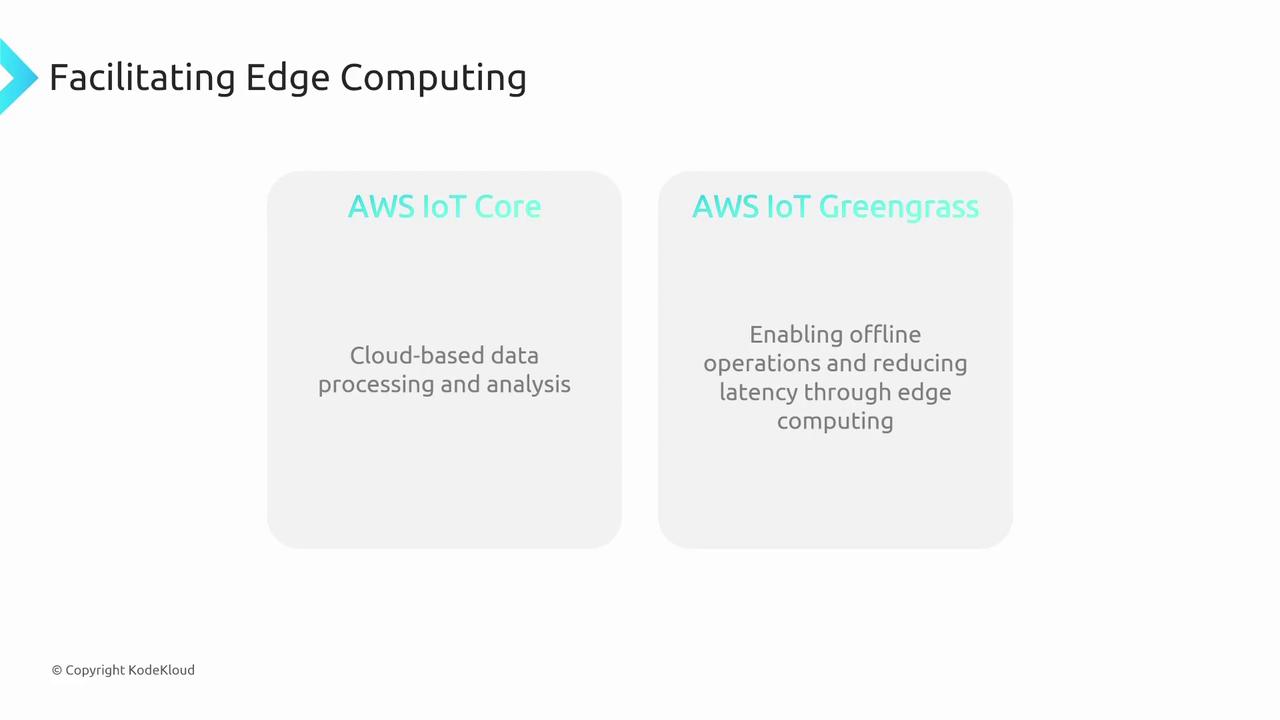
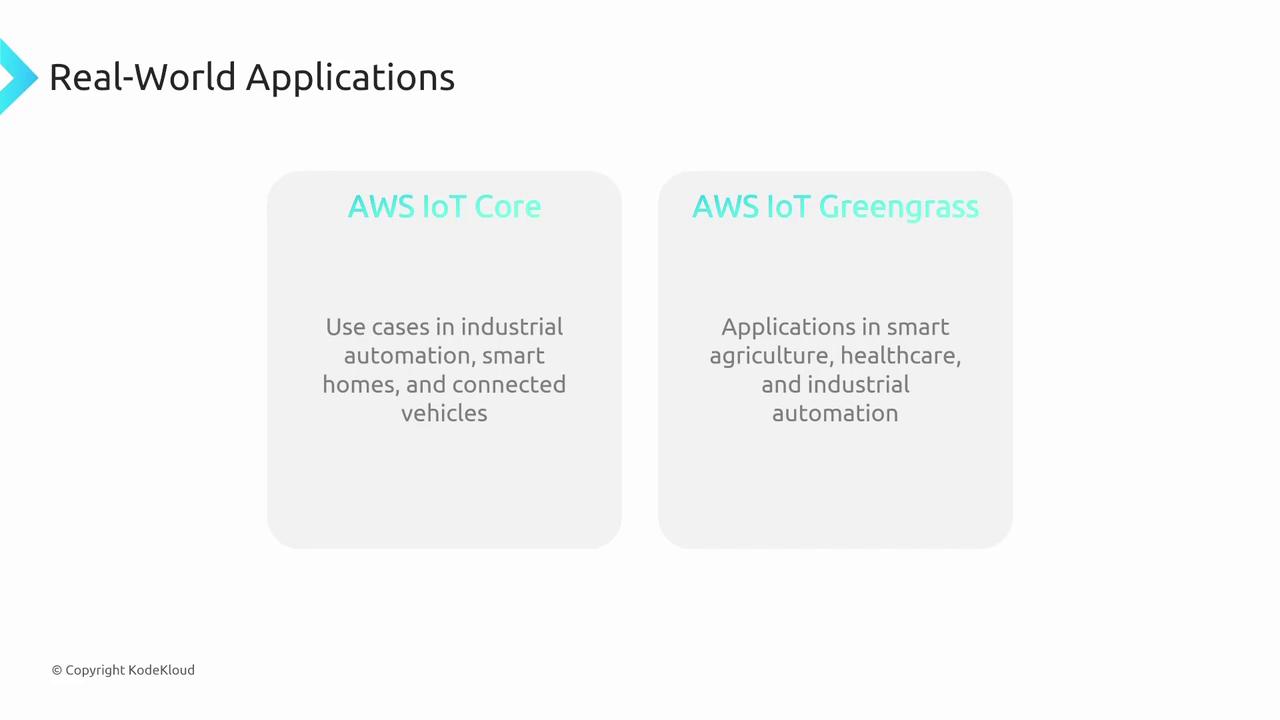
Understanding the strengths of both AWS IoT Core and IoT Greengrass is crucial for building efficient, secure, and scalable IoT solutions. These topics are essential for the Cloud Practitioner exam, so a firm grasp of each service’s role in the IoT ecosystem is highly recommended.
I'm Michael Forrester, and I look forward to seeing you in the next article.
Watch Video
Watch video content